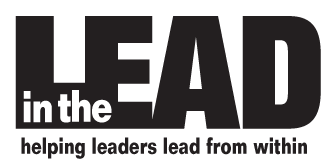How is your self-awareness?
For many organizations its “feedback season” because many of them are completing performance reviews. Regardless of the time of the year, you are in the habit of gathering feedback from your colleagues on your performance?
High-performing leaders are more aware of their own strengths and shortcoming than average performing managers. This awareness helps them to work within the skills they know they have in order to achieve expected results. They aren’t striving for what they are not. Allan Church informed our thinking on self-awareness in his groundbreaking research published in 1997.3 He compared data between self-reports and subordinates on over 1,300 leaders from four independent and varied organizations. He discovered that regardless of the nature of the leader’s profession, higher performing leaders were more aware of their own strengths and shortcomings than their average performing counterparts. How do they have this understanding? They regularly seek feedback on their own performance and approach.
As a leader, develop a habit for seeking feedback from others, peers, your boss, even your direct reports. However, approaching a colleague with “how am I doing” or “what did you think?” may not provide actionable insights that you seek. Whether you request feedback via email, phone call or in a face-to-face meeting, focus on looking forward and get to specifics. You might ask:
What did I do that helped our success?
What could I do even better to be more effective? Ask for not only “how it went” but what skills did you use.
What might I do instead?
You can also share what your development focus is. For example, you may be working on your influencing skills. Ask your colleague what they have noticed in your influence skills and ask for ideas to be a more effective influencer. While your colleague is speaking, take notes. Taking notes shows that you are interested and respectful of your colleague’s time. Ask questions for clarifications or examples if you’re unclear.
After gathering the feedback, weigh the pros and cons of what you heard. You don’t have to take action on all feedback received. When you do take actions, however, let others know so they can appreciate the time they’ve invested in you.
